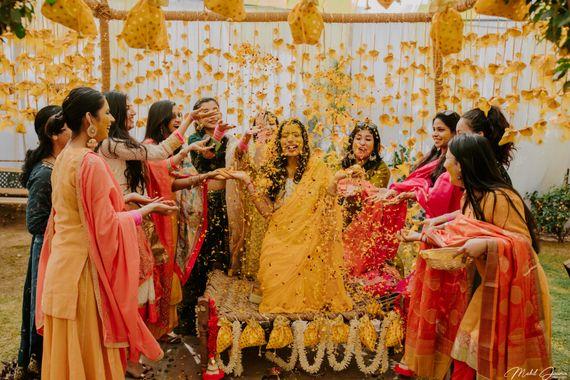Sarah & Suman


Pre-Wedding Events

Question
Haldi
Answer
The Haldi ceremony is a ritual holy bath also known as pithi ceremony, which is one of the pre-wedding ceremonies in India. Turmeric (haldi), oil and water are applied to both the bride and groom by married women on the morning of the wedding. The mixture is believed to bless the couple before the wedding. It is known to have properties that leave the skin fair and glowing. The haldi is considered auspicious and also signifies protection. The auspiciousness of this ingredient and its colour brings prosperity to the couple to start off their new life together.
Question
Mehendi Ceremony
Answer
Celebrated by the Bride's family, the Mehendi Ceremony is a ritual observance that derives its origin from the Traditional Indian customs. In this ceremony, Mehendi is put in the hands and feet of the bride, in beautiful and intricate designs. Mehendi mainly consists of henna paste. The entire ritual of Mehendi Ceremony has a deeper significance. It signifies love in a marriage and it is highly auspicious if the bride is able to retain her Mehendi for a longer time, since this indicates more love from her husband. The Mehendi Ceremony is accompanied with great merriment and dancing and the females take a major role in Mehendi Ceremony. Held before the marriage, this function is lit up by the colorful dresses, vibrant music and enthusiastic dance.
Question
Sangeet
Answer
The word “Sangeet “ means music, but when it is used as a term to describe a celebratory event during an Indian wedding it translates to Music Night or Musical party. This musical night is a celebration of the union of not only the couple but the bonding of both families. It is here that both sides bring down their barriers and mingle in a fun environment. It’s usually held a day before the wedding. It may be held in a huge hotel room to accommodate all wedding guests, or it may be a small affair at the bride’s home. But most of the sangeet parties are huge and loud and every bit like a reception but super fun.